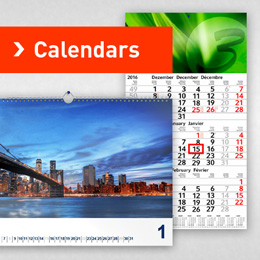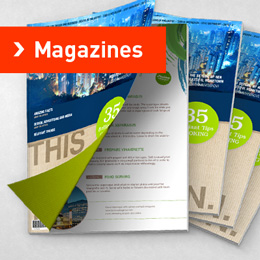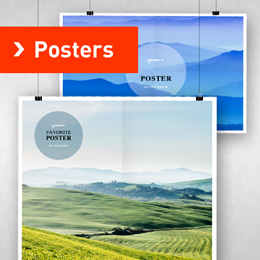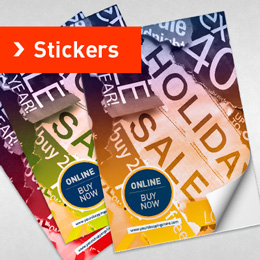Austria
Belgium
Canada
Czech Republic
Denmark
Finland
France
Germany
Great Britain
Greece
Hungary
Ireland
Italy
Luxembourg
Netherlands
Norway
Poland
Portugal
Slovakia
Slovenia
Spain
Sweden
Switzerland
USA
Printing products
- Ad inserts
- Address labels
- Appointment cards
- Birthday cards
- Booklets
- Bookmarks
- Books
- Bottle labels (sticky/stick-on)
- Brochures/Magazines
- Business cards
- Calendars
- CD/DVD products
- Christening cards
- Christmas cards
- Christmas postcards
- Clipboards
- Compliment slips
- Contactless cards
- Desk pads
- Dissertations
- Dividers (separator sheets)
- Doctoral theses
- Document folders
- Door hangers
- Drawing folders
- Election Posters
- Envelopes
- Flyers/Folded flyers
- Folded cards
- Folders
- Gift tags
- Gift wrapping papers
- Greeting Cards
- Invitations
- Job Application Folders
- Labels
- Letterheads
- Lever arch files
- Loyalty cards
- Magazine files
- Magnetic stripe cards
- Membership cards
- Memo pads
- NCR papers
- Neon posters
- Neon stickers
- Note pads
- Notebooks
- Packing tapes
- Pamphlets
- Plastic cards
- Plastic Sleeves
- Postcards
- Posters
- Printing Sheets
- Ring binders
- Ring folders
- Sales Folders
- Seminar folders
- Slipcases
- Smart cards
- Stamps
- Stickers
- Sticky note sets
- Sticky notes
- Student magazines
- Sympathy Cards
- Tablet hardcovers
- Tickets
- Wedding Cards
- Wedding magazines
- Writing cases
- More products?
Photo products
- Photo books
- Photo buttons
- Photo calendar
- Photo canvas
- Photo collages
- Photo colouring books
- Photo cups
- Photo door plaques
- Photo greeting cards
- Photo mouse pads
- Photo paint calendars
- Photo posters
- Photo prints
- Photo puzzles
- Photo smartphone cases
- Photo stickers
- Photo tablet cases
- Photo wall murals
- Photo wall pictures
- Photomatch
- More products?
- Created online with
Textile products
- Aprons
- Bags
- Baseball caps
- Bathrobes
- Beanies
- Blouses
- Chef jackets
- Gilets
- Gym bags
- Hoodies
- Jackets
- Jerseys
- Long sleeves
- Polo shirts
- Running T-shirts
- Shirts
- Sport shorts/trousers
- Sport socks
- Sweatshirts/Sweaters
- T-shirts
- T-shirts for babies
- T-shirts for kids
- Towels
- Work jackets
- Work trousers
- Zip up hoodies
- More products?
Packaging
Advertising equipment
- (Chair) Covers
- A-boards
- Accessories
- Advertising column
- Backlit films
- Banner frames
- Beachflags
- Business signs
- Canvas prints
- Counters
- Door signs
- Event signs
- Fabric Banners
- Flags
- Floor stickers
- Frames
- L-/X-banners
- Light boxes
- Magnetic sheets
- Magnets
- Pavement Signs
- Pop-up stands
- Pop-up towers
- Rigid banners with stand
- Roller Banners
- Self adhesive film
- Showroom plates
- Signboards
- Signs with suction cups
- Tarpaulins/Banners
- Tension fabric frames
- More products?
Large-format
Catering supplies
- Aprons
- Bathrobes
- Bottle tags
- Chef jackets
- Coasters
- Cutlery bags
- Drip catchers
- Menus
- Mugs
- Napkins
- Order Pads
- Place cards
- Place mats
- Tent cards
- More products?
Promo products
- Advent calendars
- Bag clips
- Ballpoint pens
- Bottle openers
- Chocolate
- Cinnamon star biscuits
- Deck chairs
- Dextrose candy
- Drink cans
- Floor mats
- Folding rulers
- Fruit drops
- Gingerbread
- Ice scrapers
- Keyrings
- Lanyards
- Letter openers
- Lollipops
- Match sticks
- Mugs
- Paperclips
- Parking discs
- Pencils
- Rulers
- Stress balls
- Tape measures
- Trolley coins
- Umbrellas
- USB sticks
- Wine gums
- Wristbands
- More products?
Office supplies
- Ballpoint pens
- Business card cases
- Business card holders
- Crayons
- Envelopes
- Erasers
- Fineliners
- Glue sticks
- Highlighters
- Hole punches
- Ink cartridges
- Note pads
- Note paper boxes
- Notebooks
- Paperclips
- Pen refills
- Pencils
- Plastic sleeves
- Pocket calculators
- Rulers
- Stamps
- Staplers
- Sticky note sets
- Sticky notes
- Toners
- Whiteboard markers
- More products?










Apps will take over the internet | weekly comment
Apps will take over the internet
Since the very beginnings our online experience mainly consisted of clicking links and typing or pasting URI’s in the top bar of our internet browser. Not anymore. The rise of the mighty smartphone is the apocalyptic horseman for the internet experience as we know it – at least in a mobile context. As mobile access to the worldwide web increases at an insane rate network operators become scared of the spirits they have cited. Sounds good and helps to get across the message: Mobile is key!
It basically began with the release of the second iPhone in 2008 and the launch of the itunes app store, which made the app concept immensely popular. There’s an app for literally anything. The iTunes app store alone currently lists close to 280,000 by October 2010! The word “app” is a truncation of “application” and refers to a small program running on your operating system. Their great advantages are access to the core features of a phone and the ability to combine these with online information. Sounds complicated but isn’t, really. Take the currently trending augmented reality apps: They use the camera input of the device and link it to online information about the objects you aim the camera on. More advanced options include localization and phone orientation to provide information about your surroundings. The HRS app „Hotels Now!“ is a great example. This is something mobile websites can’t do, no matter how hard they try.
Another big plus of customized apps is the specialized user interface, which plays an important role in shaping our experience. Good apps and their interfaces are tailored precisely to their core functionality, making them the perfect platform for a specific task. A little example: If I want to know where the next train station is I simply open the app for that with one click and after another one to start the process I usually know where the station is and how to get there. Using the mobile browser I first have to get a clue where I am in the first place. Then I have to open the browser, find a website with relevant information, search my location and then for a station in the vicinity. Believe me, I tried both and suffered multiple choleric fits going through the browser experience. It’s a bit like finding this one little thingy on your shopping list in an immense 100-million-products supermarket – with your legs shackled. No wonder that people turn towards apps for simple convenience. Some online projects could even be said to stand or fall with the app for mobile access. That’s especially true for the currently trending location based services many of us came to love so much.
I’m well aware that apps also have their downsides. The immense fragmentation of operating systems (OS) and handsets with their different characteristics and limitations can make developers cry as much as optimizing for the Internet Explorer does. Just have a look at this chart from the tweetdeck android-app development process to understand what I mean. And Android is just ONE major player!
However, this is absolutely normal for such a young market where everyone and his dog try to grab a piece of the cake. This will become less of a problem with the market maturing as some OS’s will be weeded out by competitive pressure and as standards develop. Funnily enough it was Microsoft which learned from the Android fragmentation insanity. They simply set minimum requirements for the handsets and network operators to reduce compatibility issues.
Another important, and very controversial, aspect of apps is their degree of openness. With an app it’s a lot easier to control the information going through to the user. You could even say that content filtering is a built-in feature and part of the core idea whereas a browser is basically a neutral display machine. The topic is difficult and space is rare, so we suggest you go inform yourself to draw your own picture as this isn’t a point I want to make here.
The point I’m making here is that at the current pace of development we will consume and share an increasing share of information via specialised little helpers, called apps. This will naturally transform the nature of how information is treated both on the senders’ and the recipients’ side. So, maybe one day we will tell our grandchildren “You know, back then at the dawn of the app-age, when browsers still existed, everything was different”.
Stephan de Paly
Related posts: